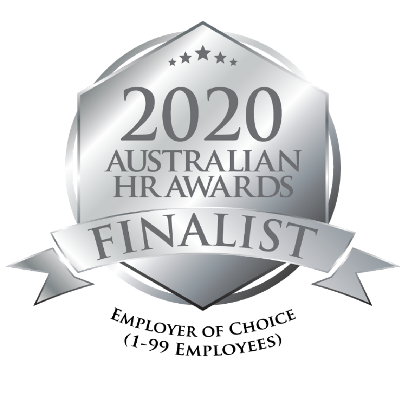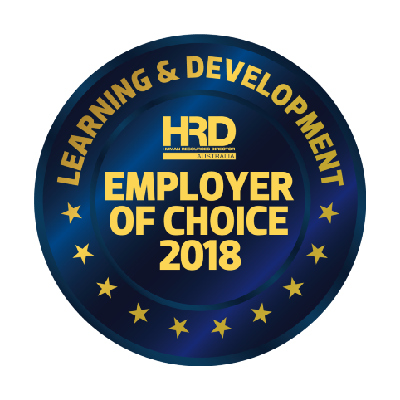As a Learning and Organisational Development specialist I am curious about the role of adaptivity in teams and workplaces and how to leverage it. How do your teams deal with change and learn from their operating environments? Are you someone who embraces change and evolves as a leader of teams? Or do your teams avoid and stay in their comfort zone, only fumbling within group think out of fear?
The ability to adapt is a capability that has seen many businesses and individuals thrive during 2020 as the business community accepts the challenges and opportunities that has been presented to us. Adaptivity is now the number one goal and skill that employers are wanting to recruit for, reward and cultivate in teams as we move towards the evolution of people at work or as I advocate the industrial revolution 4.0. Who we are has changed, how we lead teams must evolve.
It would be fool hardy for leaders and HR practitioners not to recognise the value of adaptability, flexibility and agility as core drivers to high performing teams and ongoing business sustainability. The alternative to this being demise whenever we are in a time of crisis or disruption or not. Imagine the damage to work teams and culture if one chooses to maintain rigid status quo, not evoking creative design thinking as essential criterion. What a missed opportunity as leaders!
When your business model is no longer working and revenues dip, teams who can adapt by stemming the revenue leakage, thinking differently, and most importantly looking to the future and seeing a way forward, are the ones who will carry the business forward through those transformative times. Conversely, the teams who cling to the standard way of doing business, in the end, will drag the business down.
We must take the wisdom of the adaptivity value and adopt a growth mindset. We need to reset our organisational practices as we transition, understanding what intrinsically motivates us to maximise our team and business performance contexts.
Adaptability is defined as “how well a person or group reacts to the inevitability of change”. We want team members who volunteer to take on new responsibilities and squeeze their curiosity muscle to ask questions that provoke new ways of doing or thinking. We need to be able to recognise this quality in individuals so we can hire, build and retain these people who are highly employable and immensely valuable in our work teams. Adaptability is an indicator of success. It is important to note that adaptability is not fixed, everyone has the capacity to measure, experiment and improve their ability to adapt.
Leveraging Adaptivity in Teams
1. Ask “What If” or “How can we…” questions in teams
These curious questions when posed in teams allow them to picture multiple possible versions of the future and make their decisions accordingly – whether that be looking at new ways to improve customer outcomes or designing solutions to challenges in service delivery. How a team responds is a measure for you to get a sense of their adaptability based on how many scenarios they can come up with and how strong their combined vision is. How do team members consciously listen to others and adapt their own thinking to embrace fresh ideas or novel thinking generated by the group – or do they stay fixed in their own opinion.
2. Seek signs of “unlearning”, instead of just learning
It is wise to recognise and validate team members who seek to challenge what they presume to already know and layer that with new information or data. This is the attribute of team members who are “active unlearners”. These team members seek to unlearn when they reach a new level of mastery or change is present that they do not need the old ways of doings to propel them forward – they release the learning or way of doing they no longer need rather than hold onto the past learnt methods to foster new found success. Unlearning provides an opportunity to shift perspectives in teams. The intersection between areas of expertise in teams, where together they can build new sets of skills together leveraging off this shared expertise is the true magic and a sign of team’s high performing adaptivity ratio.
3. Foster exploration and experimentation
Teams benefit when there is a culture of experimentation and exploration. Sticking with the same old ways expecting a different outcome is the definition of insanity as Einstein so famously proclaimed. Simply encouraging teams to seek alternative pathways, fostering a culture of trust and permission is a way to leverage adaptability. You need to give teams adequate elbow room to make decisions, create shared goals and explore alternatives with a mindful risk lens. You can miss out on something brilliant if you are only ever driving teams in one direction. Encourage wander, mindful team exploration through creativity, and connection to step into any changes with confidence. Reward teams who adopt non-linear thinking. Be prepared to give teams a laneway to zig and zag to optimise the achievement of the team goals.
4. Keep a Failure Log for team reflection
Encourage teams to write in their reports the times where they were wrong, changed their mind or made mistakes. What did you learn from that experience? How can we adapt to do it differently next time? Failure is not a source of shame or embarrassment rather an opportunity to bounce ahead, live the experience and adapt. The failure log deserves equal footing on the shelf with the team’s awesomeness portfolio (team wins and testimonials).
Failure has to be understood as a learning opportunity for improved adaptation instead of as an indication of incompetence.
To that end, leaders must create environments where failure is de-stigmatised and even normalised. Consider having a monthly “Friday Failed it” debrief within the group with complimentary commiseration snacks.
5. Collaborate with transparency
Team members can help each other adapt and innovate by regularly and productively collaborating. Encouraging your team to come together to collaborate allows them to communicate with transparency, share new knowledge, ask questions and support each other. It creates an environment where their knowledge is pooled, and everyone has equal opportunity to share their ideas.
In addition, collaboration often sparks insights and new ideas that one individual may not have been able to come up with in isolation. This helps a team become more responsive to change. Invest in collaboration tools like Trello or Teams or Slack as mechanisms for people to display new levels of ideation, debate and discussion. Diversity of thought will allow your team to collectively explore ideas that may otherwise not have been proposed or considered.
6. Encourage resourcefulness
If your team tends to dwell on a lack of X, Y or Z this can only lead to inertia. Challenge this as a leader and encourage resourcefulness and diversity of thought. Adopt the “How can we..” creative thinking to unblock the solution perception, ensure all team members had a shared understanding of the situation or the intention. It is important for teams to have access to the resources they need to be adaptive. What areas in your office can staff group to be creative? Is there access to whiteboards, markers, post it notes to work out loud? What is the team’s budget delegation to allow flow of the resources they need?
Adaptability can always be improved in teams. We work in a rapidly changing and diverse environment. This ability to adjust or shift makes an teams nimble and that is important because most industries today are in some state of flux.
We work best when adaption is proactively pursued, not just as a reactive afterthought. We mindfully seek it out, continually exercise it and flex it like a muscle.
Your business is only as adaptable as its people. Be future fit in terms of talent, culture and adaptability skills.










